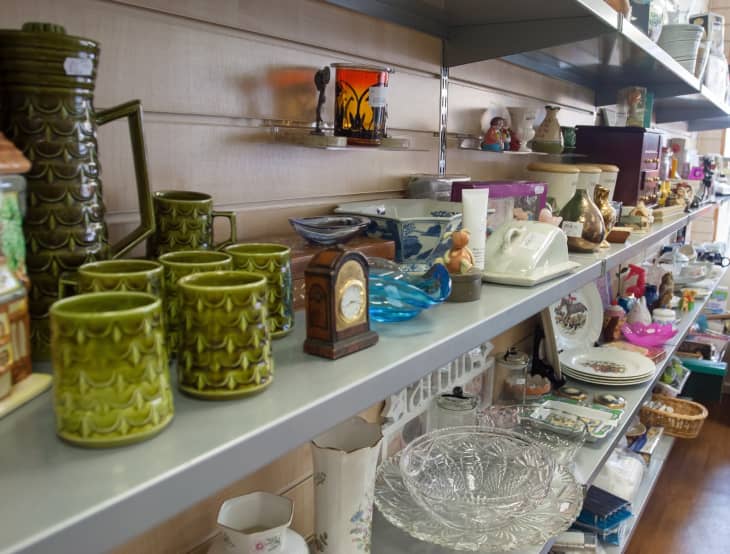Here’s Why You Should Test Thrifted Items for Lead

It’s common to celebrate a long-awaited score at the thrift store and immediately place it into your home. But if you’ve been shopping at the flea market, thrifting at your local secondhand shop, or stooping from the side of a Brooklyn brownstone, it’s important to test your items for lead — especially if you’ll be dining with it. And yes, that includes your recently thrifted colorful glasses and vintage Pyrex containers.
If you’re adding a set of teacups, plates, or bowls to your kitchen cabinet, it might be beneficial to add them to a decorative shelf or use them as trinket trays, instead of eating or drinking. Even furniture and children’s toys can have traces of lead in them.
This June, the New York State Department of Health launched a public health awareness campaign to educate adults on exposure to lead poisoning, and it recommended washing your clothes post-renovation projects. “Don’t Bring Lead Home” specifically targets activities like “remodeling a home or working with lead paint,” as they can leave fragments of dust on clothes or shoes, but isn’t limited to hobbies like gardening.
Although the Department of Health didn’t mention thrifted items, don’t let your guard down and make sure to test them for lead. You can purchase a lead test kit with multiple swabs from Amazon, Lowe’s, or your local hardware store, and they’re easy to use on ceramics, wood, painted surfaces, and metal. Once the testing swab is dipped into vinegar, you’ll receive results in 30 seconds and remember — red means lead.
According to the CDC, there is no amount of lead that is “safe” for our bodies, so unfortunately it might be in your best interest to toss out items that test positive for lead. Symptoms of lead poisoning in adults can lead to high blood pressure and cardiovascular disease, while children can experience neurological issues. It’s a bit more common to find traces of lead in paint or water pipes, so you’ll want to take any suspicion of lead seriously, even if it’s on a small plant pot.
Brandi, also known as @moonflowerthrifts on TikTok, shared that a majority of her vintage mugs tested positive for lead and that “collecting vintage mugs is canceled.” There’s nothing wrong with keeping an eye out for cute mugs at the thrift store, but you’ll either have to settle for them as display pieces or bring a testing kit with you while shopping.
Hopefully your beloved items and hand-me-down furniture are safe from lead poisoning, but if you or a loved one suspects exposure to lead, contact Poison Control at 1-800-222-1222.